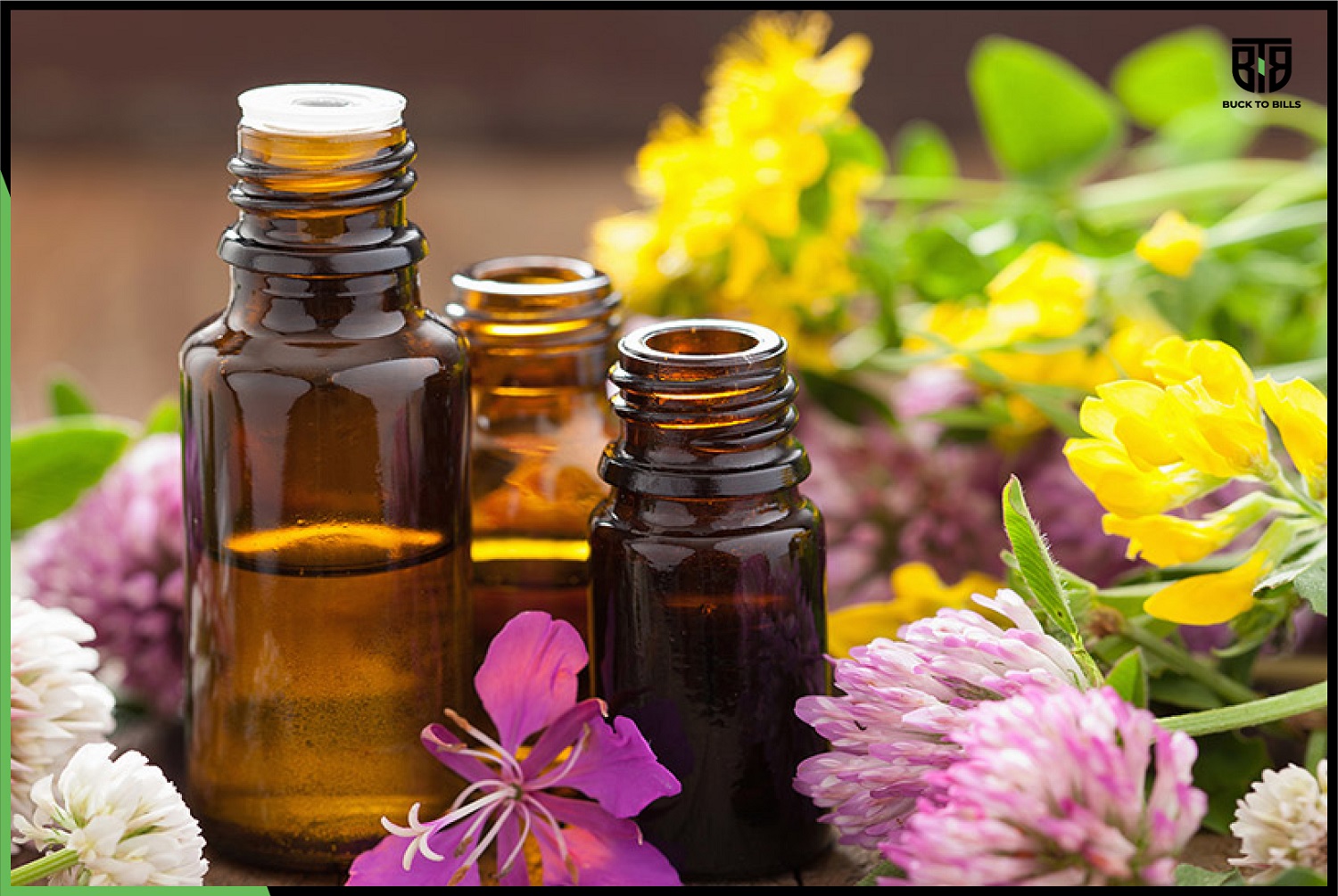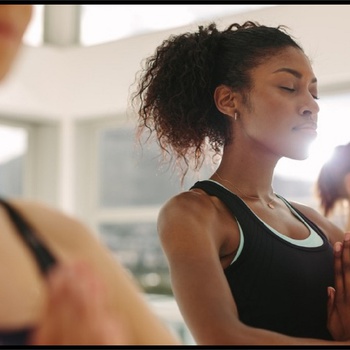The prominence of complementary clinical treatments is growing day by day. One such additional treatment that has gained significance lately is aromatherapy. An increasing number of people are turning towards aromatherapy, while a few are still skeptical about the results. This article deciphers the pros and cons associated with aromatherapy. Read on to learn more about aromatherapy and see if it works for you:
What is aromatherapy?
Aromatherapy is a complementary treatment that uses plant extracts and oils to boost and promote overall health and wellbeing. It is also known as essential oil therapy as it uses essential oils too. Aromatherapy claims to improve physical and mental health by using essential oils.
As I mentioned above, aromatherapy has recently gained significant traction in both the fields of science and medicine.
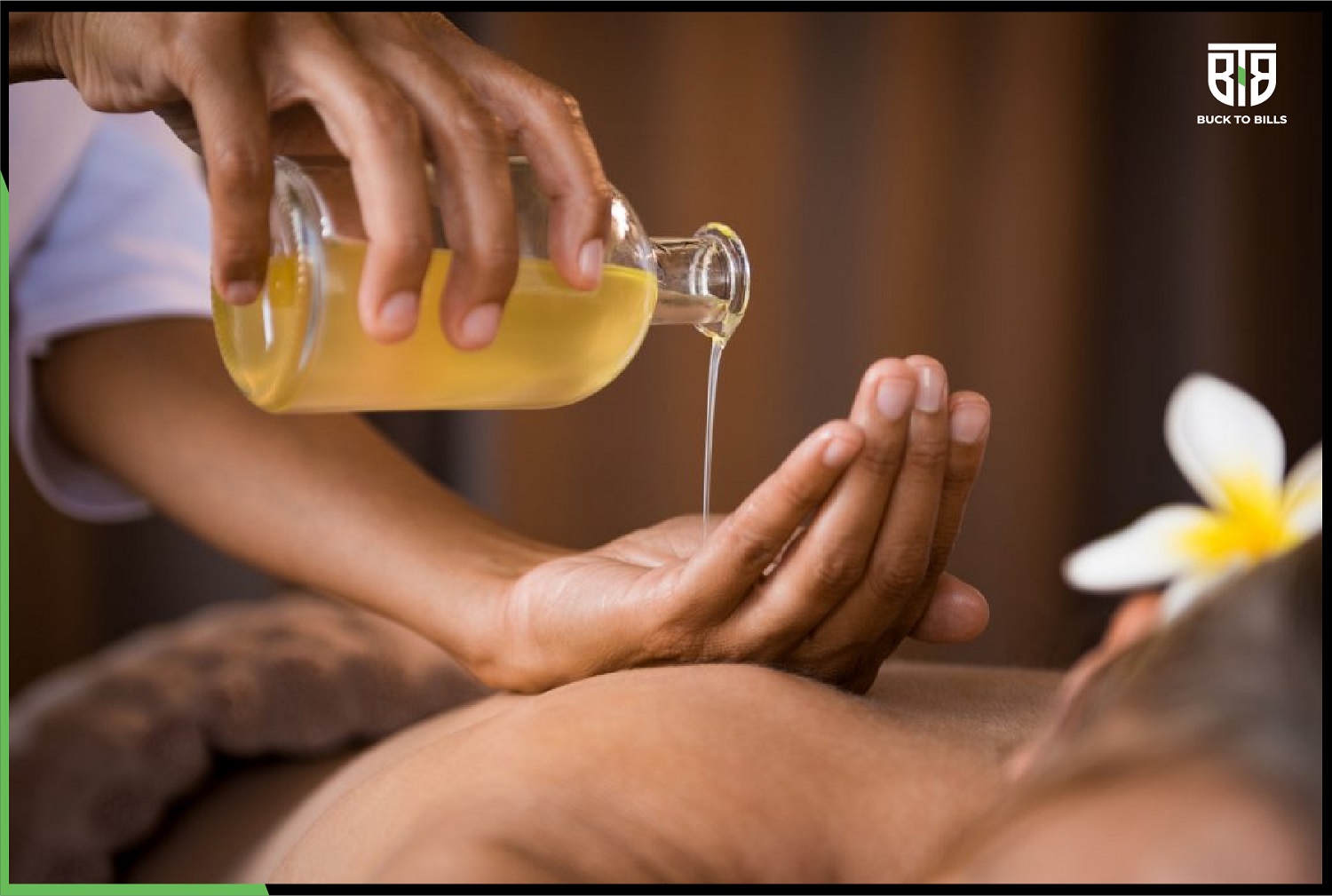
What does aromatherapy claim to do?
Aromatherapy claims to do the following things. We have compiled the list backed by empirical evidence and researches for you:
- Aromatherapy claims to ease mental stress, anxiety, frustration, and depression.
- Massaging relaxes and calms both your body and mind.
- Improves sleep and fights insomnia.
- Helps people struggling with dementia.
- Relaxes muscles and eases certain pains.
Benefits of aromatherapy:
Aroma Therapy is just a complementary medical treatment and cannot replace conventional medical and clinical procedures. However, it is believed to treat the following conditions:
- Aromatherapy is believed to reduce Nausea.
- Aromatherapy involves massage with essential oils, which helps in easing physical stress and acts as a cure for body pains and ache.
- It is also considered a good solution to reduce anxiety, depression, stress, and agitation.
- Massaging with essential oils involved in aromatherapy eases muscles and relaxes the body. Hence, it fights insomnia and promotes good sleep.
- Massaging also works great for muscle aches and body pains.
- Aromatherapy is considered to treat menstrual and menopause problems in women.
- The massaging also releases blockages in the body and boosts blood circulation.
- Head massage with oil mitigates hair loss and other hair-related problems. Besides that, it also relieves headaches.
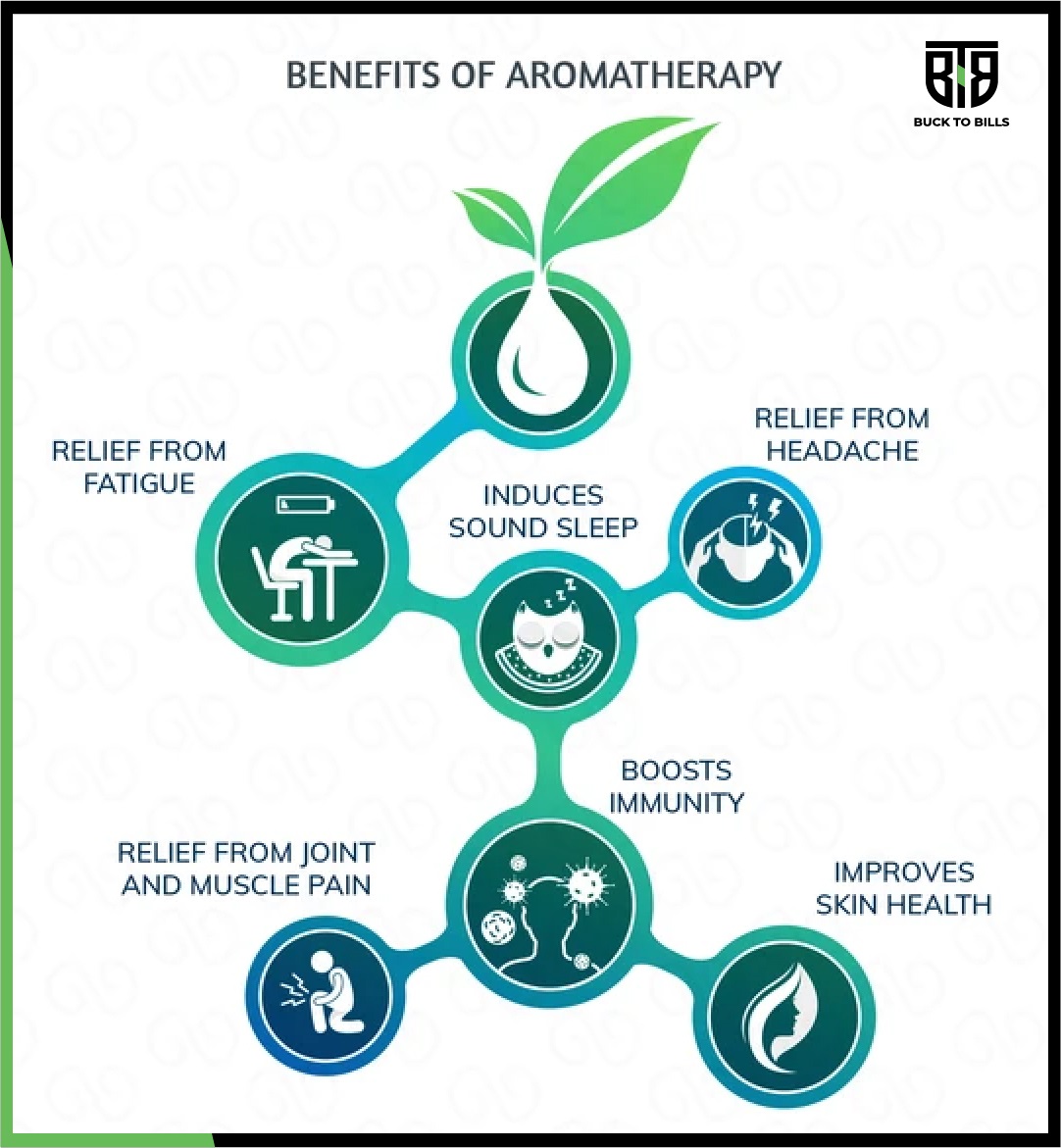
Precautions:
As there are a significant number of risks associated with the oils, it would be better if you take few precautions to avoid any risks.
- Never apply oils directly to your skin.
- Do a patch test every time you try a new oil.
- Use carrier oil if you are skeptical about any oil.
- Some oils are sensitive to sun exposure. Citrus essential oil is one example. Avoid these oils if you think you will be exposed to sunlight.
- Children, old age people, and pregnant ladies are advised to use oils with caution, under the doctor’s supervision if possible.
- Always remember to keep essential oils out of reach of children.
- Never swallow or breathe in essential oils.
Risks associated:
Even though oils are safe to use, you should be aware of the complications associated to ward off any side effects in the future.
- Few skin types are allergic to some oils. So, if you don’t do a patch test ahead, there is a risk of allergy, infections, and rashes.
- Few people are sensitive to strong aroma. If you are one amongst them, there is a possibility of nausea and asthma attacks.
- Some strong smells cause discomfort, nausea, and headache.
- You should be cautious in using essential oils if you are ailing from any of the below conditions:
- Asthma
- High blood pressure.
- Sensitive skin
- Hay fever.
- Epilepsy, psoriasis, and eczema.
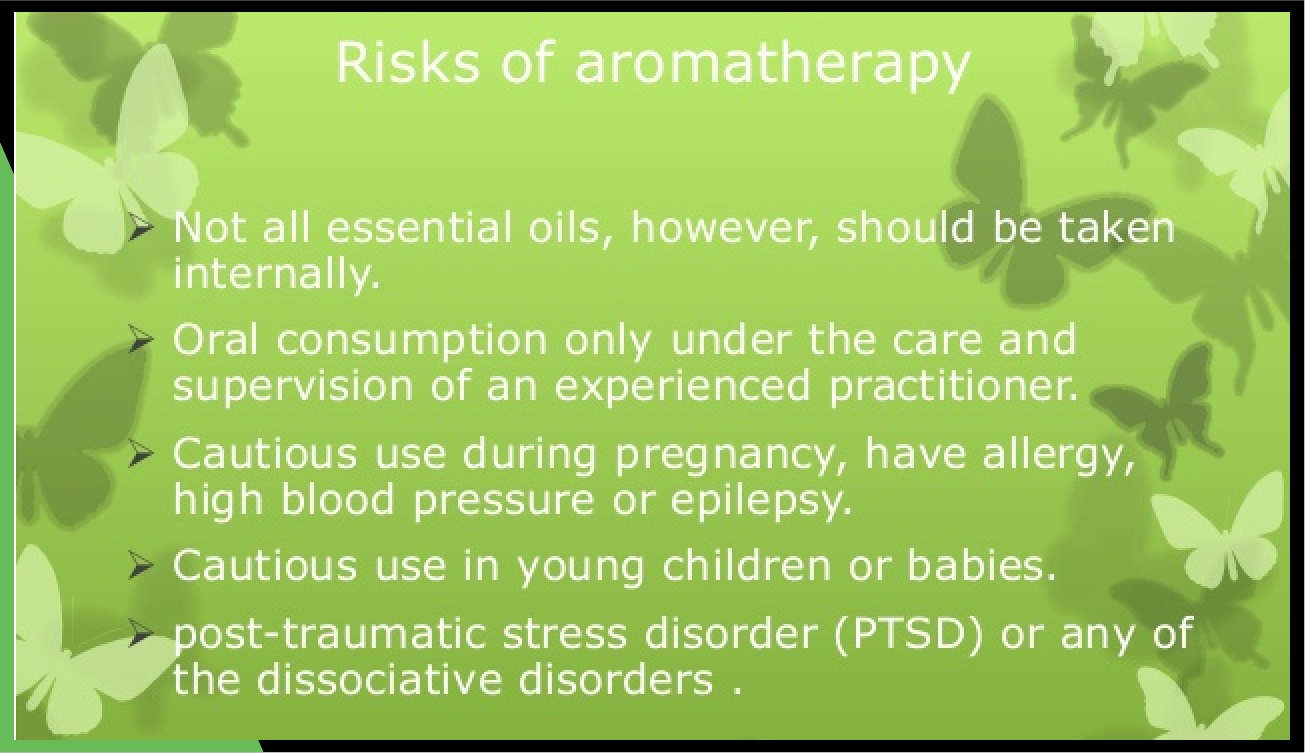
Aromatherapy is generally considered to be safe but essential oils may cause skin irritation, rashes, and allergic reactions. You must never drink essential oils as they can cause damage to the kidney, liver, and other body parts. Always contact a certified therapist for these kinds of therapies. It is better if you contact your doctor once you decide to go for aromatherapy. Discuss with a dermatologist about your skin type and how your skin reacts to different types of oils. Also, check if you have any unfound health issues to avoid any risks.

